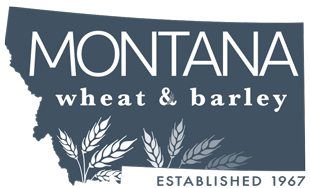By Jake McFarlin, MWBC Industry Representative
Wheat values remain relatively lackluster, leaving farmers struggling to put together profitable numbers. Export sales continue to be the biggest challenge for the Pacific Northwest (PNW) market. The market is factoring in large US production with all wheat ending stocks projected around 850 million bushels.
South American and Australian origins have been competing for the title of “Cheapest Generic Wheat Supplier,” ousting Black Sea shippers from this long help position. Stories of Russian shippers and producers complaining about their inability to be competitive seem to be drumming up a sense of contempt rather than sympathy from US producers.
Mid-May brought a little good news as futures dipped to new contract lows. US exporters were able to take advantage of the cheaper prices and began to add some incremental export business for August and later slots. A few large incremental export sales have given some much-needed relief to the pluggy supply line, especially for lower protein hard red winter.
Mainstream news has been focused on recent trade disputes that have largely left PNW wheat exports untouched. We have seen significant impacts to Canadian spring wheat movement into the US eastern milling market. Tariffs have cut off this supply stream that is now being supplemented by a tight, high protein hard red spring, US supply. This has caused an explosion of demand for high protein HRS. The eastern milling market is now pulling US spring wheat from as far as western Montana.
The barley side of the market isn’t much better. Decreasing beer demand has caused barley demand to decrease drastically over the past three to five years. Local barley contract volumes have fallen an estimated 20 percent annually for the past three years with some production being moved out of state and some simply disappearing. Prices have dropped about 25 percent in the past three years. Conditions seem to be alright, but fears of early irrigation shut-off have producers concerned.
*The Montana Wheat & Barley Committee is served by an industry representative as a non-voting member. Jake McFarlin, grain division manager for Mountain View Co-op and MWBC industry rep, leads a team that moves millions of bushels of Golden Triangle crops all across the world. He and his wife live in Fairfield with their two very busy kids.

